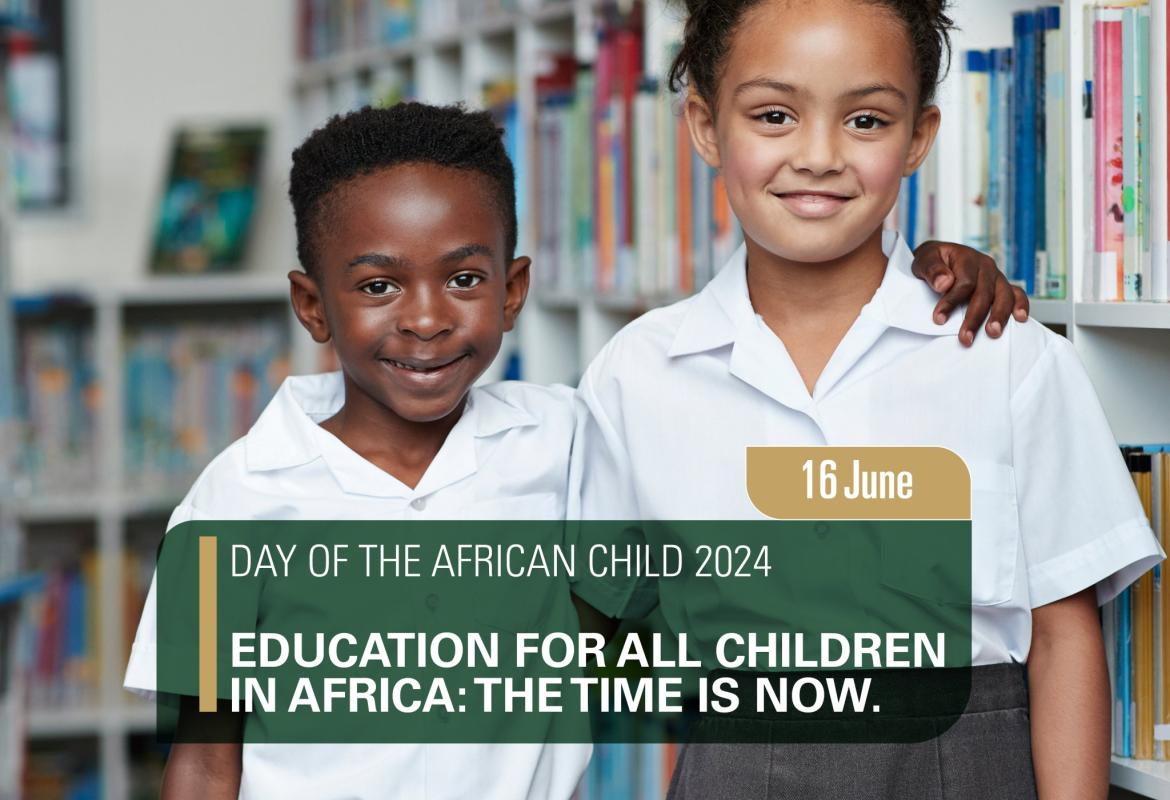Day of the African Child 2024: “Education for all children in Africa: The Time is now”
Children’s Outcome Statement
We the children of Africa stand before you here today to share our views on this year’s theme of Day of the African Child 2024: ‘Education for all children in Africa: the time is now’
Yesterday, on the 15th June, at Kiryandongo District Local Government Headquarters in Uganda, we held a children’s engagement with representatives of children from various countries of Africa, including; Uganda, Gambia, Lesotho, South Sudan, Burundi, Rwanda, Egypt and Cameroon.
We realized that, there is a large number of children who are out of school in Africa due to challenges of not having enough schools and teachers, not getting to school easily, making schools safe and improving schools to include all children from different backgrounds.
These challenges include:
Not getting to school easily
- Poor roads which makes it difficult to access schools in rural areas and expensive transport – e.g. children in Egypt spend a lot of money to reach the schools
- Poverty – Some of our parents cannot afford to pay school fees
- There are very few schools for children with special needs, but also the available schools some do not have facilities to support children with disabilities
- Limited and unstable internet connections especially in rural areas.
- Climate related problems like floods, volcanic eruptions etc. which make it hard for us to go to school.
- Lack of enough infrastructures: in some places children are still studying under trees or classrooms without roofs and lack desk and other learning materials.
- Long distance of some schools from their homes, e.g. 10kms from home
- Many children in African are being abused
- Political instability in some African Countries e.g., South Sudan, Congo, Central African Republic, Somalia etc
- Negative Cultural norms and practices e.g. Child Marriage, FGM- people who don’t believe in girl child education
- Inadequate resources to improve access and quality of education. Allocation to education sector across African Countries is not enough to cater for the learning needs of the children in the schools
- Regional imbalance, many schools in urban than Rural areas
Not having enough schools and teachers.
- Few teachers
- Inadequate supervision by key stakeholders like; government, parents, community, etc
- Not enough infrastructure e.g. no laboratories, no lights, no medical facilities, no water
- Some parents do not value education
Making schools safe
- Violence against children in schools
- Overcrowding in classes
- Corporal punishment in schools
- Discrimination by teachers in some African Countries based on race, gender, religion, disability etc.
Improve schools to include all children from different backgrounds
- Some teachers are still using old teaching methods of imparting knowledge to children.
- Limited meaningful participation of children on issues that affect us in school.
- Limited funding for government schools
- Mental health problems affecting children’s education. Some cannot concentrate in class due to stress
- Embezzlement of funds meant to improve education in Africa.
- Low enforcement of policies, laws meant to improve on education services in African states
Ladies and gentlemen, do not lose heart, we the children have also put forward some recommendations that we believe if put in action, Africa as a continent will shine in education, and the time is now:
1. We call upon Member States of the African Union to:
- To allocate sufficient budget for education
- Increase quality of education by training teachers,
- Ensure that education is free and compulsory
- Improve school infrastructure e.g. classrooms, library, latrines
- Providing mentorship programs for teachers
- Embrace technology in Education sectors
- Increase house hold income
- To increase budget allocations to school feeding programmes across African states.
2. We call upon the African Union/The African Children’s Committee.
- To promote peace among the member states
- Encourage member states to put education first in all African states
4. We call upon Civil Society Organizations to:
- Support African Union Member States in improving the quality of education and ensuring that all children can go to school
- Provide support in the construction of schools in rural areas.
- To educate our parents and communities on the value of education
5. We call upon Parents to:
- Provide scholastic materials and basic needs for children
- Parents to participate in the school activities.
- Parents to create time to understand how their children are learning.
6. Children
- Fellow children please let us listen to our teachers and parents.
- Fellow children please avoid bad peer groups.
- We call upon children who have dropped out of school to return back to school and complete their education.
- We also encourage fellow children in school to work hard for a better future
In conclusion, we the children of Africa, thank Uganda for hosting this year’s Day of the African Child, in Kiryandongo District and providing us an opportunity to share our ideas with other children from the Continent. We hope that our views will be considered.
We the children of Africa end by saying that - Education for all children in Africa; the Time is Now.
Adopted on 16 June 2024, Kiryandogo Local District Headquarters, Uganda







